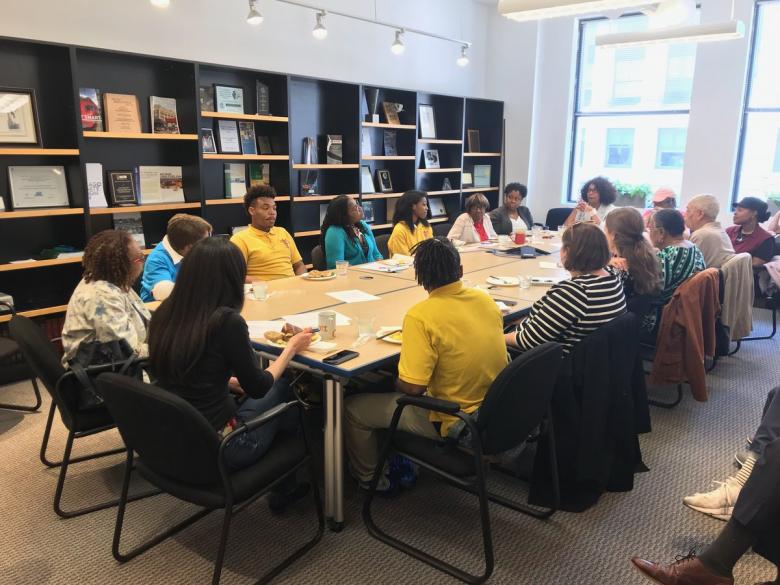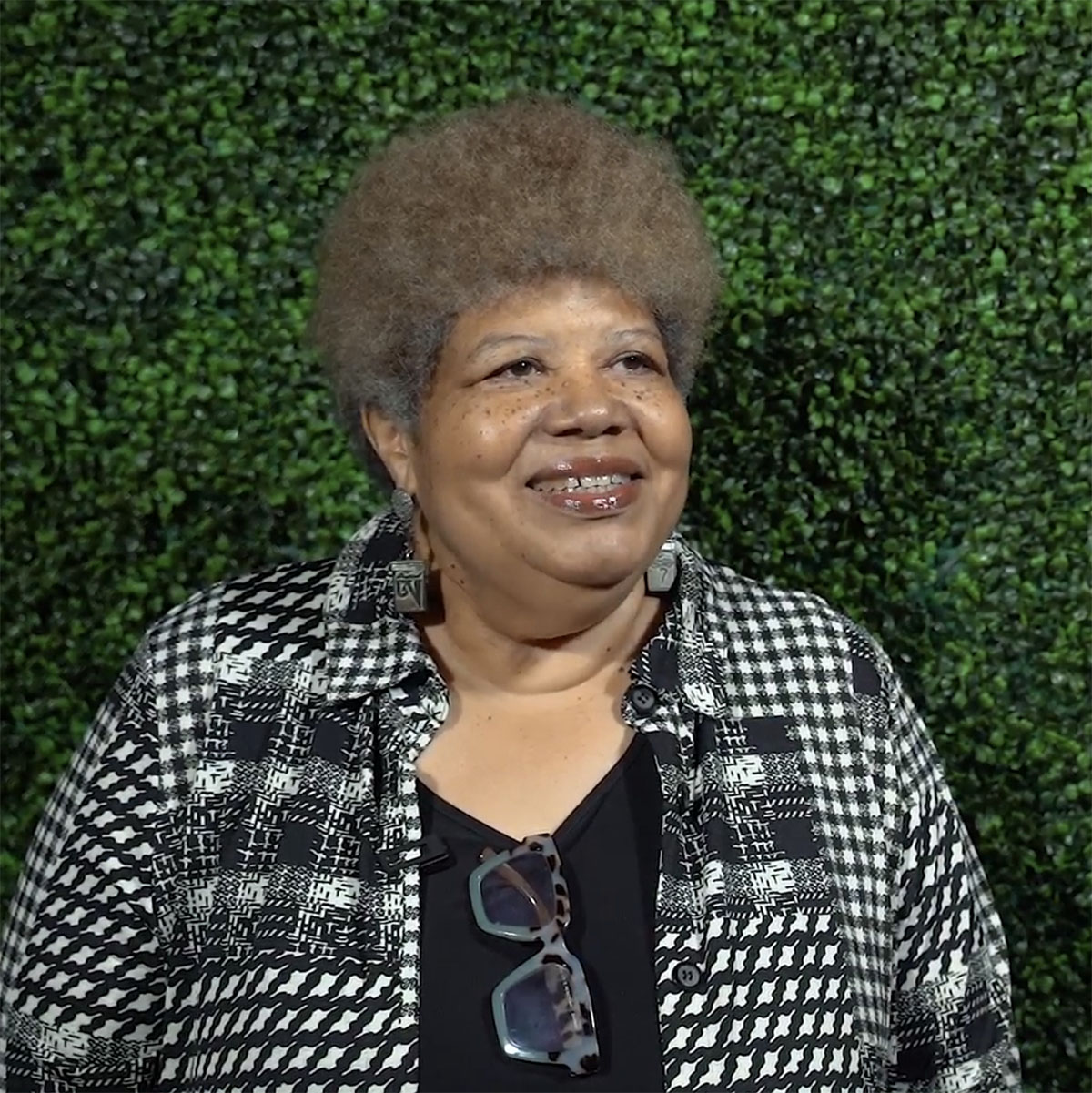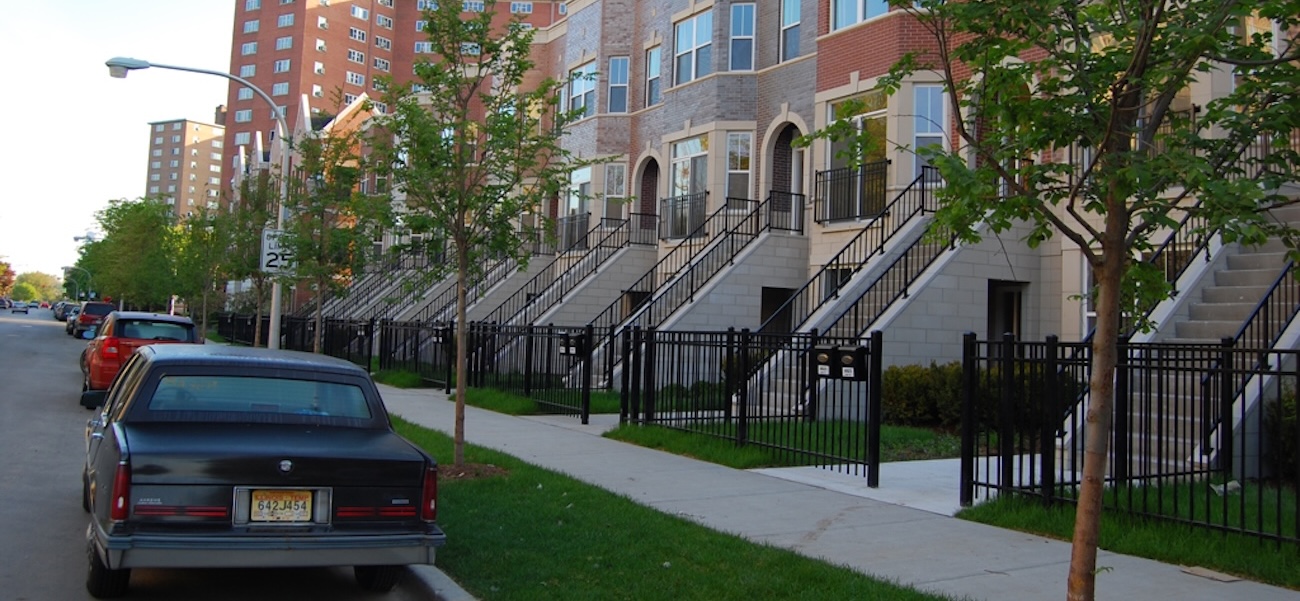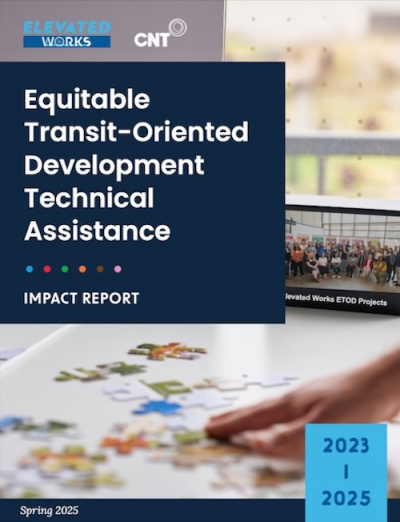CNT was delighted to participate again in the Chicago Community Trust’s On the Table on May 8th, 2018. Over lunch at CNT’s offices, we hosted a range of guests in a conversation about environmental justice. Attendees included chairs and co-chairs from the Robbins and Chatham RainReady community steering committees, students from a local high school, and members of the Elevated Chicago coalition. The topic was “Beyond Baby Boomers: Passing the Torch on Local Environmental Justice,” addressing the question of intergenerational engagement in activism. Whether it was a concern, a question, or a promising solution, each guest had something to contribute to the vibrant discussion – furthering a dialogue to expand youth voices in local environmental issues.
Baby boomers in attendance sought advice on how to engage younger generations - those from Generation X, the Millennials, and even Generation Z. While the range of responses was quite diverse - one answer in particular set the tone for the remainder of the discussion. “Why should I care about environmental justice when someone is getting shot on the corner?” asked a student from Innovations High School. The rest of the room fell silent, but as they did, one voice in particular emerged with distinction. It was Cheryl Johnson of People for Community Recovery and daughter of Hazel Johnson, who began to connect the dots. Hazel Johnson, the founder of People for Community Recovery, was considered the “mother of environmental justice.” Hazel Johnson, who passed away in 2011, was a South Side environmental activist and fought Chicago housing officials on asbestos, blasted corporate polluters and rallied residents to protest contamination.
She conveyed that social justice is not a stand-alone battle; rather, that environmental justice both directly and indirectly affects it. When the Robert Taylor homes were knocked down, it was reported as a social issue, yet, as Cheryl expressed, what was not mentioned was that lead-poisoned water was the suspected reason for their demolition, among other poorer living conditions. Because the polluted water received little attention during and after the demolition, thousands of families and their children were left poisoned. Cheryl suggested that issues of lead in the water contributed to mental health instability linked to perpetual violence in Chicago’s underserved neighborhoods. Environmental justice issues are related to community safety issues.

When posed with the idea of “block clubs” (local-community-based meetings) the younger voices began to respond with more precise recommendations for future inter-generational engagement. They suggested ideas like using local celebrities to draw a crowd, telling stories to discuss a community need, and their desire to be involved in a movement alongside their peers. But there was one idea that was of a particular interest, a critique on the block club format all-together. As the baby boomers expressed a frustration with younger people for not attending these meetings, reading newspapers, etc. they learned that the model itself was designed for an older generation.
The younger generations expressed hunger for knowledge, but feel isolated, and recognize the need to adopt the issue of environmental justice as one of their own. References to the March for Our Lives were prevalent. Specifically, millennials cited the effectiveness of a social event, one with free food and entertainment. They suggested drawing the younger generations in with a “social carrot,” then having individual conversations with them to tell the “story” of why they are needed. Ultimately, the idea is to host events specifically designed from a younger generation's perspective for a younger generation audience - a movement that lets the younger voices take charge.
CNT sees this On The Table as only the beginning of intergenerational dialogue and efforts in our environmental justice efforts. The On The Table was an opportunity to collect ideas and share paths moving forward, both for CNT’s work and for efforts of the attendees. CNT will be meeting again with attendees for continued learning on how strategies discussed have worked, or have not. Do you have an idea that could support multiple generations working together on environment justice issues? Tweet us @CNT_Tweets #EngagementforEnvironmentalJustice #PassingtheTorch #LocalEnvironmentalJustice #BeyondBabyBoomers





 Strengthening Transit Through Community Partnerships
Strengthening Transit Through Community Partnerships